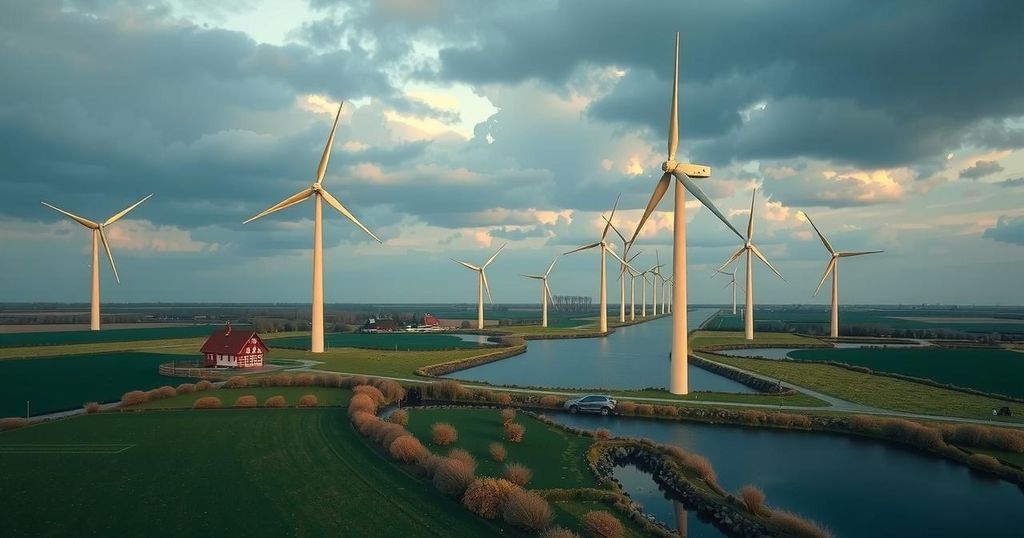Mild Weather and Wind Power Reduce Gas Prices in Dutch and British Markets

Warmer temperatures and increased wind energy production have resulted in lower gas prices in the Dutch and British markets. The Dutch TTF’s front-month contract declined to €39.40 per megawatt-hour, while British weekend contracts fell to 94.90 pence per therm. Analysts anticipate a slight rise in demand during the workweek. Additionally, geopolitical tensions, particularly in the Middle East, contribute further complexity to these market dynamics.
Recent trends indicate that a combination of warmer-than-average temperatures and enhanced wind power production has led to a notable decline in gas prices within the Dutch and British markets. This downturn offers a reprieve in an otherwise strained market context. The rising temperatures across Europe have caused a decrease in gas demand, thereby influencing prices at crucial trading centers. For instance, the Dutch Title Transfer Facility (TTF) observed its benchmark front-month price decrease to €39.40 per megawatt-hour, whereas British weekend contracts dropped to 94.90 pence per therm. Analysts predict a slight uptick in gas consumption by approximately 88 GWh/d during the workweek due to anticipated steady gas demands from power plants. However, Norwegian gas exports have seen a minor reduction attributed to extended maintenance, while the price differential between the Asian and European markets remains stable, offering little incentive for US liquefied natural gas (LNG) exporters. Notably, the ongoing geopolitical tensions, especially regarding the situation in the Middle East, contribute complex dynamics to the energy market landscape.
The fluctuations in gas pricing are intricately tied to various environmental and geopolitical factors. The current mild weather across Europe is significantly lowering gas demand, ushering a decrease in prices. This is observable in leading hubs such as the Dutch TTF and British gas marketplaces, where recent data reflects a downward trend. Analysts project future increases in demand during the workweek as conditions stabilize. However, external factors, primarily the geopolitical climate surrounding the Middle East, also play an essential role in shaping market conditions. Understanding these interlinked factors is crucial for navigating the energy market effectively.
In conclusion, the interplay between environmental conditions and geopolitical events significantly influences gas pricing in Dutch and British markets. The current lesser demand caused by warmer weather, coupled with increased wind energy production, has enabled a decline in prices, offering a temporary alleviation for market participants. Nevertheless, overarching geopolitical uncertainties persist, necessitating vigilant monitoring of these developments as they have the potential to impact global gas supply and pricing.
Original Source: finimize.com






